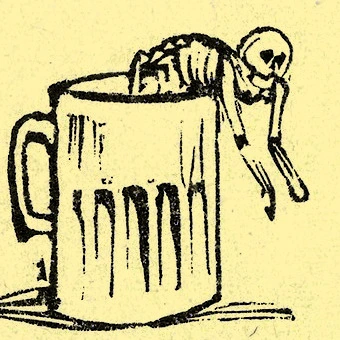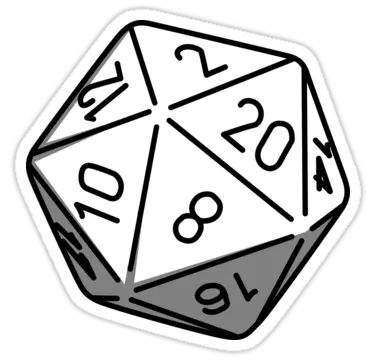Context: I’m missing a cutting board. So I wrote in our telegram family group: “Wo ist eigentlich unser zweites großes Schneidebrett hin?” (literally: “Where is actually our second big cuttingboard thither?”).
By using the modal particle “eigentlich” I insinuate that something is oddly off and express an emotional state of curiousity and/or mild discontent.
By adding “hin”, I notify that I ask because it is not where it is supposed to be and not because I don’t know where it should be.
Now I ask myself, how would I express this additional information in English?
Edit: Thank you all for your answers! I learned a lot. Just our cutting board is still gone, and probably enjoying it’s freedom somewhere … I suppose.
English is a highly indirect language when it comes to these sorts of statements. “Have you seen the cutting board?” Would indicate that it’s not where it should be. “Where is the cutting board” would be too much of a personal accusation. It’s the type of thing you would say to a child that had hidden it. “Where do you keep the cutting board” would be how you ask when you honestly don’t know, like if you’re helping a friend prepare dinner.
“Yall, where the fuck the other cutting board at?”
They said English, not American.
“Oi, where the bloody hell’s the other chopping board, mate?”
deleted by creator
That’s the southern version. Otherwise just “where the fuck is the cutting board?!”
“It looks like the second cutting board has grown legs. Any ideas?”
The first sentence uses a sarcastic metaphor that indicates the correct placement is known but the item is not to be found there
The second sentence expresses an interest in knowing what others can tell the speaker about this situation - maybe not quite discontent, but definitely interest in it being located
In Germany, if something has grown legs, it’s implied that someone took it without asking or it has been stolen. At least that is how I am using it, or how I grew up using it.
It can also mean that in English but generally not specifically, depending on context.
Yes we have that in English too. But we also have the use of “stolen” to mean “borrowed without checking first”.
It implies zero or only the tiniest possible wrongdoing on the part or the one who took it. The use of the strong word “stolen” is meant as a sort of disjunction to eliminate any interpretation of mild annoyance.
It’s sarcasm basically, but without the tone. It’s like when I say “Uh I took one of your french fries when you were away from the table” and someone else says “oh you’re going to jail Bud”. It’s a sarcastic escalation of the severity, to signal the opposite: “It’s totally okay”
The key for all the top answers is that they imply the chopping board has moved of its own volition. This is what adds the subtle emotion to “Where is the chopping board?” without the stronger anger, hostility or suspicion.
You’re communicating that it’s not where it’s expected to be and that you’re concerned about the reason that as well as finding it.
Also having grown legs is wrong for a cutting board. It’s literally an abomination, and that implies the cutting board being gone, as a state of affairs, is a wrong. That implies the place I’ve looked and not found it is the right place, which implies I know and have checked its home location.
Something is oddly off and I’m expressing emotional state of curiosity and/or mild discontent: “So …”
It is not where it should be, but I do indeed know where the place it should be is: reference to its place.
Here’s your equivalent question in English:
So … the cutting board’s not in its place. Anybody know where it is?
Actually this could be shorter:
So … anybody know where the cutting board has gotten to?
This phrase “has gotten to” vaguely refers to a child or animal that is missing; and the missing implies it has a known home location.
Ooh ooh! Even shorter:
So … anybody know where the cutting board went?
“went” implies that I know it has moved, ie that I knew where it was, and know it’s not there right now.
Referencing a specific location can either mean “I saw it somewhere once” or it can mean “I know its home location”, and the first use case doesn’t make sense per theory of mind because if you saw it in a random place others wouldn’t know where that place is.
The cutting board seems to have vanished!
Send it back, Picard!
“Where has the second cutting board gone?”
This indicates that it’s not where it’s supposed to be, or at least not where you expected it to be and you’re looking for it. I can’t say for sure as I don’t speak German, but in English the “emotional state” you refer to is pretty clear in the context.
“Where is actually our second big cuttingboard thither?"
I lol’d
“Eigentlich” here would be “by the way” because it’s used to express curiosity in a marginalised way. “wo ist… hin” is “where has… gone (to)”
So a more literal translation including the undertones would be “By the way, where has our big cutting board gone?”
I think the most direct translation in this context would be “Where on earth is…” (or more extreme) “Where the hell is…”
These inserts add almost exactly the same connotations you describe for “eigentlich”, though perhaps also with the implication that you have spent some time looking for it already
O cutting board, cutting board, wherefore art thou cutting board?
“Because otherwise you’d damage your kitchen counter”
“Deny thy counter and refuse thy knife”
Perfect response
Spoken verbally, intonation can get you there. You can imagine this question asked perfectly calmly and innocently, “Where’s the cutting board?” “Oh it’s over there on the kitchen table.” “Ah.” Or you could imagine Batman growl screaming it in the Joker’s face. WHERE’S THE CUTTING BOARD?!?! TELL ME!!!
Now, in terms of phrasing, “Does anyone know where the cutting board is?” is probably fairly calm and innocent, “Who hid the cutting board?” is more accusatory/conspiratorial, “where’d the cutting board go?” implies you know where it was/should be, but it is not there, “What happened to the cutting board?” might mean it’s gone, or it might mean it’s damaged or in some adverse state, “Where the hell is the cutting board?” is probably getting a bit angry, “If I were a cutting board, where would I be?” means you’re either in a new kitchen and don’t know where the tools are stored, or it has been misplaced and you’re still calm about it…there are lots of options.
“Where has it gone?” = avoiding assigning blame. “Where did you put it?” = assigning blame.
Add an expletive. Example “where’s the fucking cutting board?”
Where the fucking fuck is the fucking fuck? Fuck!
German Modalpartikeln are rather unique to the language, so really hard to translate. To convey the same “feeling” you’d probably need to rely on other resources, like:
- synonyms;
- figures of speech;
- interjections;
- a more or less direct grammar;
- punctuation, emojis, etc.
For example, I feel like your sentence could be translated like “Our second cutting board is curiously missing. Does anyone know where it is?”. That “curiously” performing a similar job as “eigentlich”, and the indirect phrasing of the second sentence highlighting that you have no clue on where it is. It’s still missing the “it is not here” connotation of “hin”, but I guess that it’s good enough?
[Caveat lector: I’m not fully proficient in English, and certainly not in German. So… yeah.]
“is curiously missing” could also be replaced with other verbs that capture the unexpected / curious nature of its absence such as “has vanished” or “has disappeared”.
Those could work, too. It’s a good example of using synonyms to give different connotations - all those words convey that the cutting board is not there, but in different ways.
Vanished/disappeared is of course impossible literally but, colloquially, it definitely suggests something unusual happened without directly sounding accusatory. To me it reads a bit more lighthearted than other options. And I don’t think it would be misinterpreted in text form.
Dad would always say, “Who took the cutting board?” And not in a nice way lol.
You seem to be doing alright. How do you think you might improve that proficiency even further?
deleted by creator
My recommendation is to read Stephen King.
Here’s a website that lists all his books in publication order. I’m reading them from earliest to most recent (I’m at about 1990 currently): https://www.deadgoodbooks.co.uk/profile-stephen-king/
He’s a good storyteller, he uses colloquial language, and even as a native speaker I always learn new words with every one of his books he writes. For example, I learned from reading the Tommyknockers that the word “depend” can mean “to hang from”, as in “The moss depended from the branch of the tree”.
Also, I think I’ve only seen one typo in all the books I’ve read of his so far. I’ve read about 20 (all of them up to Tommyknockers), and there was one spelling error somewhere in Christine. So it’s extremely well-edited, well-proofread.
Reading on kindle paperwhite is amazing because you can long press any word to get its definition. So much faster than trying to look it up in a dictionary, even a digital one.
Really though, any fiction is good for that. Fiction will fill in an intuitive understanding of at/on/in for example, simply by presenting each word hundreds of time in correct context.
The rules we write down to describe grammar aren’t really how it’s defined; we just write those down for fun. Grammar is really defined, and learned, the way machine learning works: tons of examples. I couldn’t tell you the rules for those words, for instance. I could try, and come up with something, but it wouldn’t convey everything I know because the knowledge is unconscious.
‘Where has the cutting board wandered off to?’ Something passively accusatory. Everyone knows the board didn’t move itself, but the speaker is not assigning blame. …and because everyone knows that there is blame to be assigned, the annoyance is sort of implied?
Add a fuck or two.
Where the fuck is the fucking cutting board?
Where the fuck have you fucking little fucker taken the fucking cutting board?
Y’all motherfuckers better tell me where in the fuck you little fucking thief’s have taken the fucking cutting board,
The relative size doesn’t matter. The fact that the cutting board isn’t in the approximate location is should be does. Adding in a bunch of cuss’ will express how seriously concerned you are. Get a little more personal and offensive with the cussing will probably speed up the answers, but also get them to hate you more. So use that sparingly.
But general cussing isn’t overall too damaging.
Looks like the cutting board didn’t get put away last time it was used, does anyone know where it ended up?
Who has stolen my second big cutting board?









